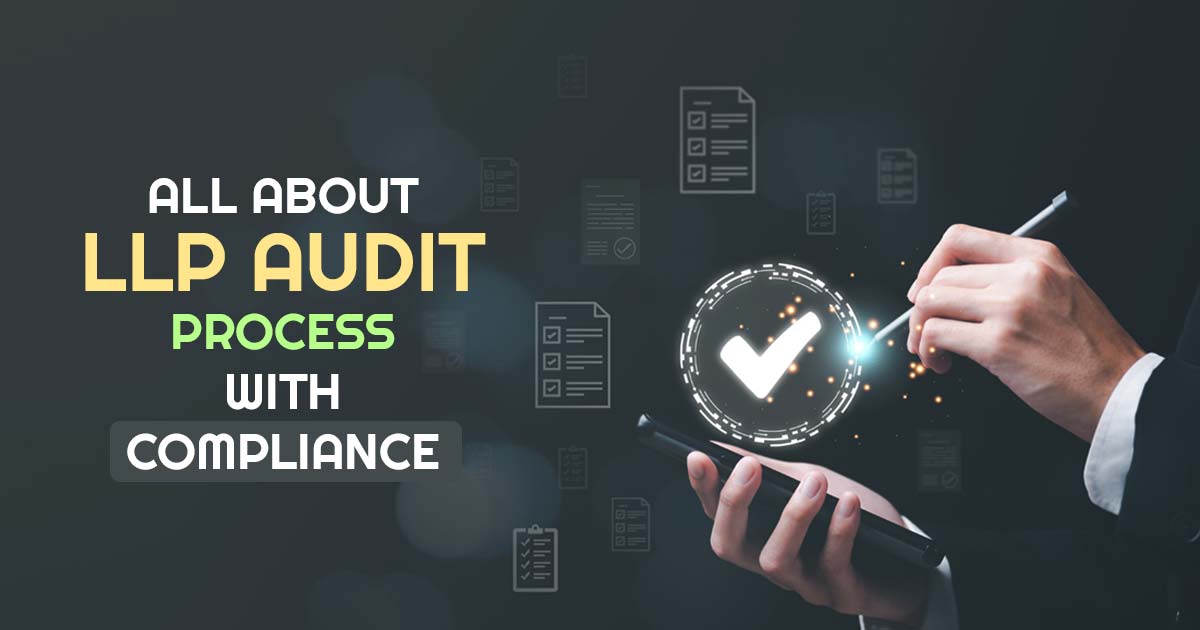
The blog specifies the major aspects of LLP audits more efficiently and furnishes the answers to common questions.
It is important for professionals and entrepreneurs to understand the audit needs of a Limited Liability Partnership (LLP) to ensure compliance with the law. LLPs are separate lawful entities directed to distinct compliance norms, auditing, and taxation.
Essential Annual Filings for LLPs
With the Ministry of Corporate Affairs (MCA) every LLP should file the annual returns to remain adhered to and prevent penalties. LLPs are a more attractive choice for small businesses because they require less compliance than private limited companies. Nevertheless, the penalties for failing to comply can be significant, reaching as high as ₹5 lakh.
Due Date for LLPs
- Statement of Accounts & Solvency: This needs to be filed within 30 days from the end of 6 months of the fiscal year.
- Annual Return: This would be required to be filed within 60 days from the finish of the fiscal year.
Irrespective of whether an LLP has started any business activity in the year, such filings are obligatory. For LLPs, the fiscal year spans from April 1 to March 31, establishing the timeline for filing deadlines.
- Statement of Accounts & Solvency: By October 30th
- Annual Return: By May 30th
When the Audit is Necessary for an LLP?
An LLP does not need to get its accounts audited till its yearly turnover surpasses Rs 40 lakh or its contribution exceeds Rs 25 lakh. If your LLP is not able to fulfill such limits then you can prevent the audit procedure that eases the yearly LLP filing.
If your LLP surpasses such a threshold then your firm must get an audit. It is been ensured by the auditors that your financial statements adhere to accounting norms such as Ind AS (Indian Accounting Standards), which is applied to larger entities and affects the way you represent the financial information.
Importance of LLP Audit
For verifying the accuracy of your financial records it is mandated that your firm must undergo audits. They are used to assist in discovering discrepancies, ensuring that your business files taxes regularly, and preventing statutory issues. If your LLP undergoes an audit, it guarantees that all financial activities and filings are clear and accurately recorded.
Read Also: A Complete Summary of Changes as per LLP Amendment Act 2021
In the tax audit of your LLP and overall auditing and taxation strategy, an audit is crucial. Adhering to Ind AS ensures that your LLP remains legally compliant while also enhancing trust among investors, partners, and stakeholders.
In What Way Do You Adhere to LLP Audit Needs?
LLPs are required to keep proper financial records and be conscious of their filing due dates. If required then appoint an auditor in advance that would assist in facilitating the procedure.
Checklist to Stay Updated Within Your Compliance
- Keep the financial records updated
- Verify your turnover and contribution to decide if the audit is required.
- Confirm filing a statement of accounts and solvency and annual return within time.
- If your LLP reaches the audit limit then engage with a professional auditor.
Penalties for Non-Compliance
If an LLP is not able to fulfil its filing or auditing liabilities then it can suffer penalties. For example, a daily fine shall be levied for late filings that add up quickly. Small LLPs may face a financial burden, as the penalty for non-compliance can increase to ₹5 lakh.








